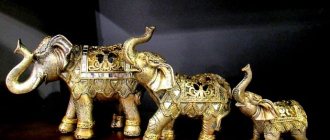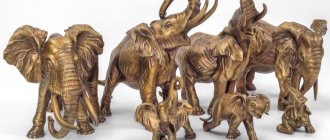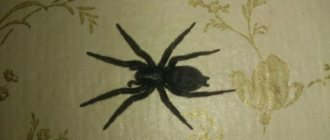An obvious serious problem that no one mentions
For other uses, see Elephant in the Room (disambiguation).
The expression " elephant in the room"
" (usually "
the elephant in the room
") or "
the elephant in the living room
" [1][2] is a metaphorical idiom in English for an important or huge topic, issue or controversial issue that is obvious or that everyone knows but no one mentions or wants to discuss because it makes at least some of them feel uncomfortable or personally, socially or politically embarrassed, controversial, inflammatory or dangerous.[3][4]
It is based on the idea/thought that something as conspicuous as an elephant can be overlooked in structured social interactions, and that sociology/psychology repression also works on a macro level. Different languages of the world have words that describe similar concepts.
Origin
This idiomatic expression may have been used much earlier than in 1959. For example, this phrase appeared 44 years earlier in the pages of the British Journal of Education
in 1915. The proposal was presented as a trivial illustration of a question that British schoolchildren might answer. may answer, for example, “Is there an elephant in the class?”
Before this, a slightly different version of the phrase was used: George Berkeley, in his debates with scientists, talked about whether there was an “invisible elephant in the room.”
This phrase may also be a response to philosopher Alfred North Whitehead's 1929 description of the reality of direct experience: “Sometimes we see an elephant, and sometimes we don't. As a result, the elephant, when present, is noticed.”
Recommendations
- Cambridge University Press. (2009). Cambridge Academic Dictionary
(Paul Hickok, editor). New York: Cambridge University Press. ISBN 978-0-521-87143-3/ISBN 978-0-521-69196-3; OCLC 183392531 - Dostoevsky, Fyodor. (1994). Demons: a novel in three parts
(Richard Pevear and Larisa Volokhonskaya, translators). London: Vintage. ISBN 0-09-914001-2 - __________. (1915). Journal of Education,
Vol. 37. Oxford: Oxford University Press. OCLC 1713625 - Palta, Namrata. (2007). Spoken English: a detailed and simplified course for learning spoken English.
New Delhi: Lotus Press. ISBN 978-8-183-82052-3; OCLC 297508439
usage
This term refers to a question, problem, decision, or controversial issue that is obvious to everyone aware of the situation, but which is deliberately ignored because doing otherwise would cause great embarrassment, sadness, controversy, or simply taboo. The idiom may imply a value judgment that the problem should be discussed openly, or it may simply be an acknowledgment that the problem exists and will not go away on its own.
The term is often used to describe a socially taboo or divisive issue such as race, religion, politics, homosexuality, mental illness or suicide. This applies when the subject is emotionally charged; and the people who might have spoken out decide that it's probably best avoided.
Similar
A variation is the phrase "elephant in the corner", which is rarely used to the same effect.
Logician and philosopher Ludwig Wittgenstein used the example of the rhinoceros in the room to illustrate the impossibility of refuting negative existential statements, or perhaps a more subtle philosophical point.
Source
see also
- 800 pound gorilla - American English expression
- Barely Legal (Banksy), an exhibition presenting a literal interpretation of the idiom
- The blind men and the elephant - A parable from the ancient Indian subcontinent, from where it spread widely
- elephant joke
- Elephant test
- Negro in the wood - An expression indicating something suspicious or wrong
- Ostrich effect
- Polite fiction
- Skeleton in the toilet (idiom)
- Taboo - Social or cultural prohibition
- Elephant in the Living Room
, 2011 documentary - The Emperor's New Clothes - A Tale by Hans Christian Andersen
- The Invisible Gorilla - 2010 book by Christopher Chabris and Daniel Simons
- Third rail politics
- Unspoken
Slonopedia–1. What does the phrase “pink elephant in the room” mean?
Let the Bible call the hippopotamus “the top of God’s ways,” and Western culture traditionally gives the title of “king of beasts” to the lion. But we... you and I know that the real “king of beasts” is the elephant.
It is he who embodies all the royal traits - power, grandeur, confident calm. And its “trumpet call” makes no less impression than the booming roar of a lion (it’s not for nothing that an elephant’s voice is often used in films to voice all sorts of monsters like dinosaurs).
African elephants Photo: Amoghavarsha J, wikipedia.org
D. “The Lord of the Rings”: “I am Oliphan - don’t touch me! I'm not a mouse, not a cat: I look a little like a tower And a little like a mountain. I move My pillar-legs as I go - And if I’m going somewhere, Don’t stand on the road!”
Not only lions, but also such heavyweights as rhinoceroses give way to the elephant. And if they don’t give in, then it’s more expensive for them.
B. Grzimek “Among the Animals of Africa”: “The ranger of the Kruger National Park (South Africa) Kuz Smith in 1960 witnessed a desperate fight between a male rhinoceros and an elephant. The elephant clearly decided not to let the rhinoceros get drunk, while he insisted on his own. During the struggle, both animals fell from a three-meter cliff into the river, however, they continued to fight in the water. And after some time, Kuz Smith found a dead rhinoceros. Huge pools of blood led to the place where he lay. There were four holes on his body, cut by tusks, not counting other, smaller wounds.”
There is nothing surprising here, considering that the elephant is currently the largest animal that travels on land. Its height can reach 4 m at the shoulders, and its weight can be 10 tons. It was just such a respectable specimen that was killed in 1955 in Angola, and now its stuffed specimen is displayed in the Smithsonian Museum in Washington.
From the film "Burenka from Maslenkino": - Maybe this is a good animal? Maybe he even has a soul? “He doesn’t look bad, only he’s very big!”
Anecdote: A mouse married an elephant, but he married him and died a day later. A mouse sits next to her husband’s body and sobs bitterly. They ask her: “Well, why are you so upset?” You only spent a day together? - Yeah! Lived a day, but bury it all your life!
It is not for nothing that the ancient Hindus believed that the Earth rests on the backs of four giant elephants, and when these elephants get tired and begin to move, earthquakes occur.
The size of these animals has found numerous expressions in sayings, popular expressions and idioms. Our compatriots will first remember Krylov’s fables - about the impudent dog Moska (“Ay, Moska! You know, she is strong, that she barks at the Elephant!”) and about the curious visitor to the Kunstkamera, who examined everything - right down to the insects, but “didn’t notice the elephant” .
No less popular in our country is the expression “Making a mountain out of a molehill” - that is, greatly exaggerating some insignificant event or fact. It is interesting that this saying is very ancient, and can be found even in the ancient Greek satirist Lucian.
Lucian “Praise of a Fly” (2nd century): “But I interrupt my speech, although I could say a lot more, lest anyone think that I, according to the proverb, make a molehill out of a molehill.”
Among philologists, such a linguistic game even appeared - turning the word “fly” into the word “elephant” by replacing just one letter. Moreover, each change must be a full word. Here is one example:
Feng Shui elephants, where to place them in the house
Where to put elephants in the house
To achieve certain goals, first of all, it is worth determining the place where the elephant should stand. After all, a lot depends on this choice.
- To attract good luck, the elephant should be placed on the windowsill, with its trunk facing the street. With it, he will, as it were, draw positive energy from the outside. But here you should be careful, as soon as you feel a surge of well-being, the figurine must be turned to face the inside of the apartment, for its further preservation;
- By installing two elephants facing the entrance opening, you can protect your home from negative energy;
- To neutralize the negative energy “Sha” arising from a large number of sharp corners, the so-called “arrows”, figurines must be placed opposite them;
- If you place the talisman in the southeast of the apartment, your financial situation will stabilize;
- In the northwest, an elephant will help attract a strong patron, strengthen the authority of the head of the family, and in the east improve health;
- On the chest of drawers in the bedroom, 2 figures can strengthen family ties and improve relationships;
- The symbol can protect against negative energy at work in the office; for this you need to place an elephant on your desk;
- In a children's room, especially on a desk for studying, a talisman will increase perseverance and efficiency, and attract good luck;
- In a room where a lot of things along with negative energy usually accumulate, a figurine can neutralize its influence on others.
You cannot place figurines in dark corners, next to torn dirty wallpaper, broken things, otherwise their energy may affect the figurines and drown out the positive influence.
Origins
This diomatic expression may have been in use much earlier than 1959. For example, the phrase appears 44 years earlier in the pages of the British Journal of Education
"in 1911. The proposal was presented as a trivial question that British schoolchildren would be able to answer, such as "Is there an elephant in the classroom?"
The first widely disseminated conceptual reference was Mark Twain's 1882 short story "Stolen's White Elephant," which chronicled the inept, visionary efforts of detectives trying to find an elephant that was eventually right there. This story, combined with Doevsky's polar bear, may have been on Jerome Frank's mind when he wrote in his US dissent against Anton Fireworks
(1946) and again in the dissent in
United States v. Leviton
(1951) "Mark Twain's story of a little boy who was told to stand in the corner and not think about the white elephant."
Before this, a slightly different version of the phrase was used, with George Berkeley talking about whether or not there was an "invisible elephant in the room" in his debates with scientists.
The phrase may also be a response to the philosopher North Whitehead in 1929 about the validity of direct experience: “Sometimes we see an elephant, and sometimes we don’t. As a result, the elephant, when present, is noticeable."
Notes
- “elephant in the (living) room | meaning of elephant in (living) room in Longman Dictionary of Contemporary English | LDOCE." www.ldoceonline.com
. Retrieved 2020-09-22. - "World Wide Words: The Elephant in the Room." World Wide Words
. Retrieved 2020-09-22. - Cambridge University Press. (2009). Cambridge Academic Dictionary,
item 298. - "The Elephant in the Room Idiom Definition - Grammar." grammarist.com
. Retrieved 2020-09-22. - ^ a b
Dostoevsky, Fyodor;
Dostoevsky, Fyodor, 1821–1881. (1994). Demons: A Novel in Three Parts
. lane Peavear, Richard, 1943-, Volokhonsky, Larisa. London: Vintage. pp. 718 and 38 respectively. ISBN 0-09-914001-2. OCLC 31657709.CS1 maint: multiple names: list of authors (link) - "OED, Draft Supplements June 2006: elephant, n." POU. Retrieved 2008-11-11.
- Martin, Gary. "'The Elephant in the Room' - the meaning and origin of this phrase." Phraseologism
. Retrieved 2020-09-22. - Journal of Education,
Vol. 37 (1915), p. 288. - "U.S. v. Antonelli Fireworks Co., 155 F.2d 631 (2d Cir. 1946)." Justia
. 1946-05-02. - "United States v. Leviton et al., 193 F.2d 848 (2d Cir. 1951)." Justia
. 1951-11-30. - Of the Nature and Elements of the External World: or Universal Immaterialism, Fully Explained and Re-Demonstrated by Thomas Collins Simon, 1862, p.18
- Process and Reality, page 6
- Palta, Namrata. (2007). Spoken English: a detailed and simplified course for learning spoken English,
paragraph 95. - Channel RCN - Noticias RCN Archived 2007-09-28 on the Wayback Machine
- "Articulo Archivado FRASES DEL AO". Archived from the original on September 10, 2012.
- "'The Elephant in the Living Room Corner': Pervasive Discrimination Among Minority Children Linked to Depression," AAPNews
(American Academy of Pediatrics).
May 8, 2010; O'Connor, P. (2008) 'The elephant in the corner: gender and higher education policy', Administration
[Institute of Public Administration Ireland] 56(1), pp. 85–110. - McDonald, J.F. (1993) "Russell, Wittgenstein and the Rhinoceros Problem" Southern Journal of Philosophy
31(4) 409-24.
Usage
This term refers to a question, problem, decision or control question that is unpleasant to everyone who knows about the situation, but which is ignored because doing otherwise would cause great reasoning, sadness or argument, or simply taboo. The idiom may imply a value judgment that the issue should be discussed openly, or it may simply be an acknowledgment that the issue is there and is not going to go away on its own.
The expression has also been used as a metaphorical idiom in Spiš. In 1994, Trial 8000 was a legal investigation into the Colombian presidential n. There have been allegations that the campaign of Colombian Liberal Party candidate Ernesto Gera was partly financed by money from the Cali Cartel. At his innocent, R stated that if drug money entered the presidential campaign, then “KolKolKol.
Title of Alan Clark's 1989 television film Elephant
" refers to the term. This in turn was influential in the title of Gus Van Sant's 2003 film of the same name, although Van Sant thought it was referring to a different expression. Alexandra Burke's 2012 single Alephant also uses the concept.
Similar
Logician and the philosopher Wittgenstein used the example of the rhinoceros in the room either to show the impossibility of dispelling negative content statements, or perhaps a more subtextual philosophical point.
Source
What does the expression “Elephant in the room” mean?
This expression came to us from the English language: “elephant in the room” in the original, and it means something that is obvious; something that everyone knows about.
Medvedev reprimanded the head of the Ministry of Agricultural Development, Alexander Tkachev, for being slightly late for the start of the Government meeting. The whole country learned about this.
After all, a personal alarm clock can tell something about its dominant? “Who are you: “Owl”, “lark”, “hibernating bear”?
You can set alarms FOR yourself in different places, which can be turned off as you wake up and walk from the bed to the toilet, then to the bathroom, then to the kitchen, dressing room, finally slamming the control shot already in the corridor before leaving the apartment.
Elephant idioms
1. Pink elephants – the translation “pink elephants” does not mean anything. Do you know what lies behind them? If you see pink elephants, it means that you are drunk as hell and have glitches, or you are delirious.
2. White elephant - “white elephant”. Have you ever been given unnecessary gifts that you don’t want to keep and can’t throw away? If yes, then you will understand what a “white elephant” is - this is an unnecessary gift, an unnecessary thing or a burdensome property, a gift or thing that you don’t know where to put and how to get rid of it, well, just like the “fifth leg of a dog.”
By the way, in banking, a “white elephant” means a transaction in which costs exceed potential profits. And “white elephant sale” means “selling all unnecessary junk” that needs to be gotten rid of.
3. Rogue elephant - “hermit elephant” - a wild elephant living away from the herd. You probably guessed that this is what they say about people who live alone, away from people.
4. To see the elephant - “to see the elephant” - once upon a time young people left home to get rich in the gold mines of California and they said that “they were going to see the elephant,” i.e. that they are going to “have an adventure, try their luck, gain life experience.” If they returned empty-handed, they said that “they'd seen the elephant.”
5. The elephant in the room - “the elephant in the room” is a situation when there is a serious topic that everyone knows about, but no one wants to talk openly about this topic. There are variations of this expression - “ big elephant in the room ,” “ ginormous elephant in the room ,” “ pink elephant in the room ,” “ white elephant in the room ,” “ blue elephant in the room .”











